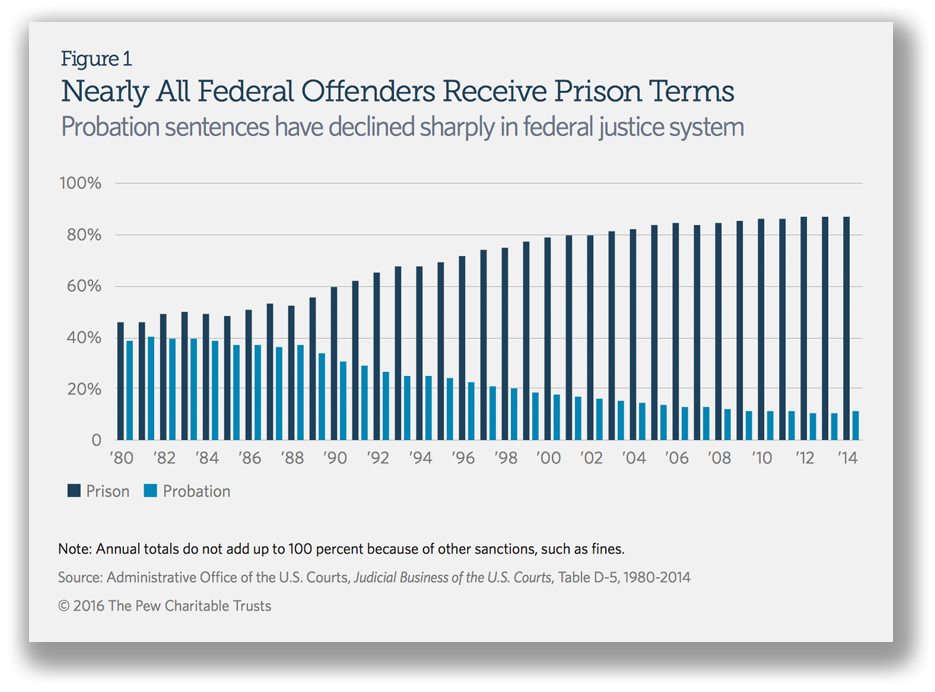This week:
Time Waits for No § 2255 Petitioner
Please Lock Me Away …
Generalissimo Francisco Franco Is Still Dead
Cases Added To Supreme Court Docket
You Drive Big, You Pay Big
House Sentence Reform Bill Now Has 50 Cosponsors, But a Political Battle Looms
TIME WAITS FOR NO § 2255 PETITIONER
 It has long been an article of faith among some Federal inmates that they may ask courts for an extension of time (beyond the 1-year cutoff) to file their post-conviction motions under 28 U.S.C. § 2255. Many have been shocked and dismayed to find out it just is not so. Last week, the U.S. Court of Appeals for the 6th Circuit, fed up with seeing so many such requests, put everyone on notice that there are no extensions granted for § 2255 motions.
It has long been an article of faith among some Federal inmates that they may ask courts for an extension of time (beyond the 1-year cutoff) to file their post-conviction motions under 28 U.S.C. § 2255. Many have been shocked and dismayed to find out it just is not so. Last week, the U.S. Court of Appeals for the 6th Circuit, fed up with seeing so many such requests, put everyone on notice that there are no extensions granted for § 2255 motions.
Mario Asakevich was convicted and sentenced to life in prison. He lost his appeal, and the Supreme Court denied review on October 7, 2013. At that point, his conviction became final, giving him one year to file a § 2255 motion. During that year, he apparently spent a lot of time in the rec yard and TV room instead of writing his § 2255 motion. On October 6, 2014, the day before his § 2255 was due, he filed a motion asking the district court to preapprove a 90-day extension for filing. The district court denied him, and Asakevich appealed.
The 6th Circuit upheld the denial, pointing out that “in the aftermath of a final judgment of conviction … and in the absence of a pending § 2255 motion, there was no action in the district court to which the motion could apply. Federal courts do not lightly grant relief in nonexistent cases. Still less do they offer advisory opinions about what they might do if an action were filed.”
While admitting that the 3rd Circuit does grant such extensions, the 6th complained that there is no statute or rule that would give a district court authority to rule on such a motion before a § 2255 proceeding is begun.
The lesson: You snooze, you lose.
United States v. Asakevich, Case No. 15-1013 (6th Cir. January 11, 2016)
PLEASE LOCK ME AWAY …

Not many people want to be doing life in Federal prison. Harlan Salmona does, because it beats the alternative, which is doing life in a state penitentiary that he believes is less safe.
Harlan Salmona picked up a Federal drug trafficking case in 1987, and then rather impulsively shot one of the witnesses to death. That got him a state murder conviction on top of the Federal conviction. Salmona started cooperating with the Feds to try to get placed in Federal prison. Unfortunately, he cooperated too well, and lied so badly that the defendant he testified against was acquitted. At that point, the Federal authorities said he had breached his plea deal.
Salmona claims that because of a promise made to him by the Assistant U.S. Attorney in a long-ago plea agreement, the Feds are required to get him transferred from state to federal custody for the remainder of his state sentence. He filed a motion seeking an order compelling the AUSA to get him placed in Federal prison, consistent with the plea agreement.
Last week, the 11th Circuit turned Salmona down. It struggled to figure out what kind of complaint Salmona could file that would give Federal courts jurisdiction to hear his claim. The closest it could come was to decide that his motion to compel performance was really a petition for writ of mandamus.
Unfortunately, for Salmona, the requirements for mandamus are strict. Mandamus is appropriate only when there is no other adequate remedy and the “plaintiff has a clear right to the relief requested.” The Court said that Salmona had no clear right to relief, because he had admitted to fabricating his testimony and had even been convicted of perjury for doing so. “To state the obvious,” the Court said, “by committing perjury Salmona substantially breached his promise to provide truthful testimony, which was a key provision of the agreement.”
United States v. Salmona, Case No. 15-12569 (11th Cir., January 8, 2016)
GENERALISSIMO FRANCISCO FRANCO IS STILL DEAD
 A report issued by the Pew Charitable Trust last week comes as no surprise. The Trust reported that “over the past three decades, imprisonment has become the dominant sanction in the federal criminal justice system. Nine in 10 federal offenders received prison sentences in 2014, up from less than half in 1980, as the use of probation declined steadily. Federal courts sentenced 2,300 fewer offenders to probation in 2014 than in 1980, even though their caseload nearly tripled during that span.”
A report issued by the Pew Charitable Trust last week comes as no surprise. The Trust reported that “over the past three decades, imprisonment has become the dominant sanction in the federal criminal justice system. Nine in 10 federal offenders received prison sentences in 2014, up from less than half in 1980, as the use of probation declined steadily. Federal courts sentenced 2,300 fewer offenders to probation in 2014 than in 1980, even though their caseload nearly tripled during that span.”
 The Report said changes in the kinds of offenses and offenders prosecuted in may have contributed to the shift toward prison and away from probation, but sentencing policies established during the 1980s and 1990s also played a role by mandating prison time for many offenses for which probation had routinely been ordered in the past. Although in the 2005 United States v. Booker ruling, “the Supreme Court deemed the guidelines ‘advisory,’ their effects nevertheless remain evident: More than three quarters of federal fraud offenders, for instance, received prison terms in 2014, compared with less than half in 1980.”
The Report said changes in the kinds of offenses and offenders prosecuted in may have contributed to the shift toward prison and away from probation, but sentencing policies established during the 1980s and 1990s also played a role by mandating prison time for many offenses for which probation had routinely been ordered in the past. Although in the 2005 United States v. Booker ruling, “the Supreme Court deemed the guidelines ‘advisory,’ their effects nevertheless remain evident: More than three quarters of federal fraud offenders, for instance, received prison terms in 2014, compared with less than half in 1980.”
Pew Charitable Trust, More Prison, Less Probation for Federal Offenders (January 13, 2016)

YOU DRIVE BIG, YOU PAY BIG
Antoine Bruce filled his days by pounding out lawsuits in the prison library. Great fun but not cheap – at $350 a pop for U.S. District Court filing fees, Antoine’s hobby was rapidly draining his commissary account.
 The Prison Litigation Reform Act of 1995 requires that inmates who proceed in forma pauperis (IFP) still pay an initial filing fee, set as “20 percent of the greater of” the average monthly deposits in their commissary account or the average balance of the account over the past 6 months. They then have to pay the rest of the fee in monthly installments of 20 percent of the last month’s deposits to the account. The initial partial fee is assessed on a per-case basis, each time the inmate files a lawsuit. Obviously, if you’re paying filing fees for four or five cases at once, you don’t have much left for ice cream.
The Prison Litigation Reform Act of 1995 requires that inmates who proceed in forma pauperis (IFP) still pay an initial filing fee, set as “20 percent of the greater of” the average monthly deposits in their commissary account or the average balance of the account over the past 6 months. They then have to pay the rest of the fee in monthly installments of 20 percent of the last month’s deposits to the account. The initial partial fee is assessed on a per-case basis, each time the inmate files a lawsuit. Obviously, if you’re paying filing fees for four or five cases at once, you don’t have much left for ice cream.
Antoine sued (it’s what he does), arguing that each of his new monthly filing fee payments should not become due until the filing fee obligations incurred in earlier cases are satisfied. The D.C. Circuit disagreed, holding that Antoine’s new monthly payments were due simultaneously with monthly payments in the earlier cases.
Last week, the Supreme Court agreed with the D.C. Circuit, holding that 28 U.S.C. Sec. 1915(b)(2) calls for simultaneous (not sequential) collection of multiple monthly installment payments. Although the statute is not clear as to how to handle multiple cases, the Supreme Court said that it does call for assessment of “an initial partial filing fee” each time a prisoner “brings a civil action or files an appeal.” Nothing in the statute suggests that Congress intended a cap on monthly collections when more than one lawsuit is active.
If you want to dance more than one dance, you have to pay the piper for each one.
Bruce v. Samuels, Case No. 14-844 (U.S. Supreme Court, January 12, 2016)
CASES ADDED TO SUPREME COURT DOCKET
Last Friday, the Supreme Court granted certiorari (that is, agreed to review) two cases of interest to us.

In McDonnell v. United States, the Court will consider whether prosecutors used too expansive an inter-pretation of the “official acts” provi-sion used in corruption cases under bribery and fraud laws. In Manuel v. Joliet, Illinois, the Court will consider whether someone who claims to have been a victim of police fabrication of evidence has a right to sue for discriminatory prosecution under the 4th Amendment. It is possible but not certain that decisions in these cases will come before the end of the Court’s term in June.
HOUSE SENTENCE REFORM BILL NOW HAS 50 COSPONSORS, BUT A POLITICAL BATTLE LOOMS

The House version of the Sentencing Reform and Corrections Act of 2015 (H.R. 3713), picked up an additional four cosponsors last week. The measure, which some are now calling “Sriracha” (like the Thai hot sauce) is now cosponsored by 50 legislators (about 12 percent of the House).
That was about the only good news for criminal justice reform advocates. On Wednesday, the day after the President’s State of the Union speech, the online political website Slate complained that “it was clear that the president had decided to leave criminal justice almost entirely out of Tuesday night’s address. Besides the reference he made to the issue at the very beginning — in which he used justice reform as an example of a bipartisan effort he hopes Democrats and Republicans can work on together during the coming year — Obama brought up the criminal justice system just once …”
Still, a January 12 report in The Hill quoted President Obama telling House Speaker Paul Ryan (R-Wis.) that he hoped “we can work together this year on bipartisan priorities like criminal justice reform …” The president has made overhauling the criminal justice system a pillar of his final year in office.
Meanwhile, other Sriracha tensions are bubbling. Last week, House Judiciary Committee Chairman Robert Goodlatte told the Atlantic magazine that the House is unlikely to approve a criminal justice reform measure that does not change the way the U.S. criminal code determines criminal intent, despite the fact that the White House opposes the changes.
At stake is a question of fairness. Goodlatte, along with conservative and libertarian organizations, supports changes he says would protect citizens from being unfairly charged with crimes they unknowingly committed. The White House, along with liberal organizations, believes that altering the burden of proof could make it more difficult to prosecute criminal activity, especially white-collar crime.

Doug Berman, an Ohio State law professor and sentencing expert, said last Thursday that “a provision clarifying that nobody should face serious federal criminal charges with-out federal prosecu-tors having to prove the accused had a significantly culpable mens rea is a critical element to doing justice in this country. Indeed, one of the reasons I stopped considering myself a “liberal” as that term is now understood is because of these kinds of issues where so-called “liberals” seem eager to deny a premise I consider fundamental in a liberal society, namely that one should not be treated like and branded a serious criminal by the government unless and until that government can prove an individual has acted and thought like a serious criminal.”
A Jan. 11 story in The Intercept quoted Sen. Charles Grassley (R-Iowa), chairman of the Judiciary Committee, as saying that he is talking to congressional leadership to see Sriracha put on this year’s agenda. “But as we head into 2016,” the magazine cautioned, “an election year hinged on Trumpian racism and bombast could threaten to sideline even the most muted of criminal justice reform bills.”
Finally, a January 12 Huffington Post opinion piece argued that House Speaker Ryan should push for more sweeping reforms than contained in the bills. “The U.S. Sentencing Commission estimated in October that under Sriracha, 4,300 out of the roughly 75,000 people who are sentenced to federal prison per year would receive shorter sentences each year. That’s equal to about 6 percent. The biggest chunk of these beneficiaries – some 3,300 – would see their sentences cut thanks to an expansion of the so-called “safety valve,” which allows defendants in drug cases to sidestep the mandatory-minimum sentence. The overall impact will be tiny …”
We’ll report every week on the status of legislation, whether it’s moving forward or just standing still.
Legal Information Services Associates provides research and drafting services to lawyers and inmates. With over 20 years experience in post-conviction motions and sentence modification strategy, we provide services on everything from direct appeals to habeas corpus to sentence reduction motions to halfway house and home confinement placement.
If you have a question, contact us using our handy contact page. We don’t charge for initial consultation.
Do you want this newsletter in PDF format? Click here.


